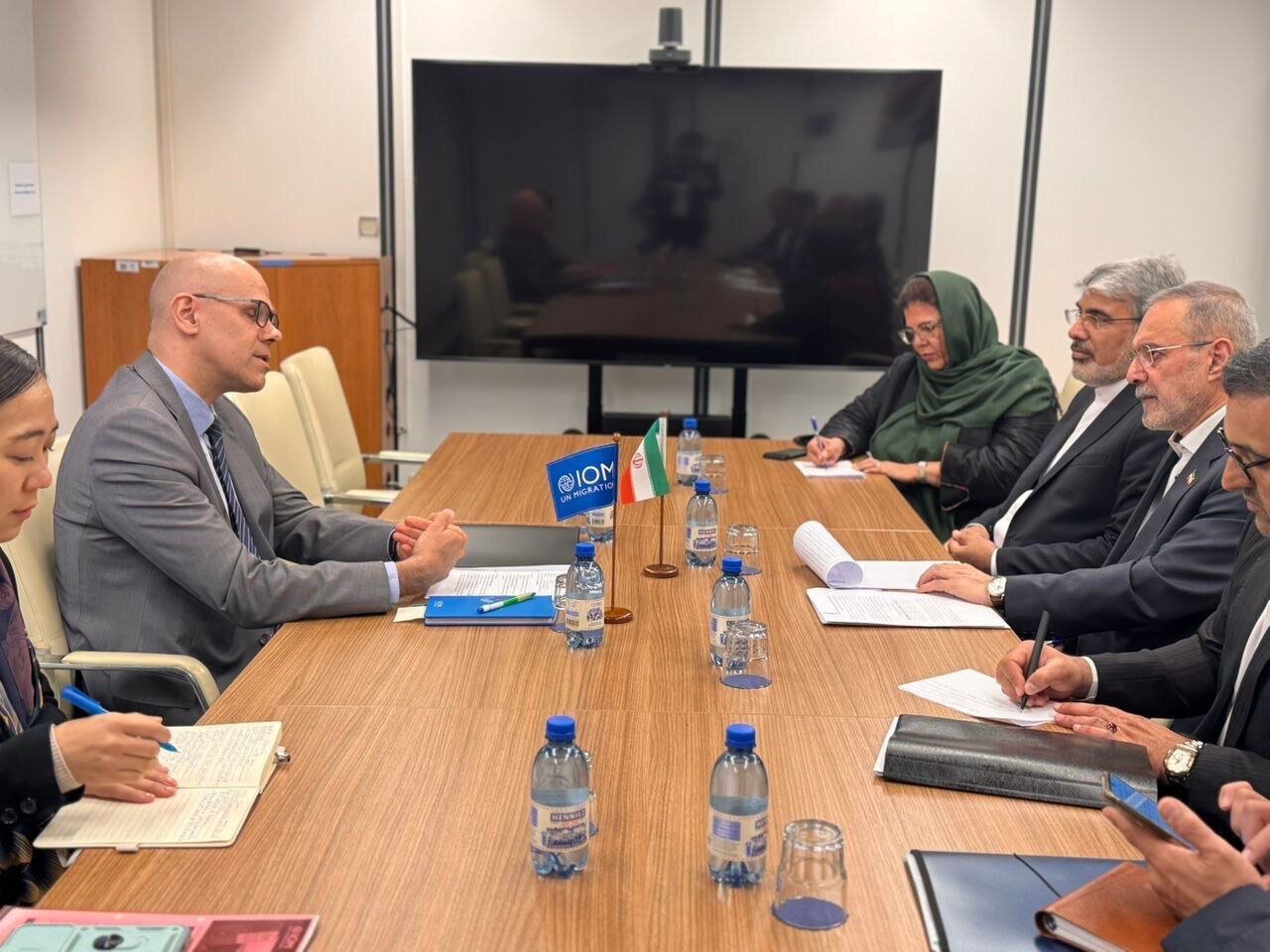Intl. Organization for Migration lauds Iran’s services to Afghan refugees

TEHRAN – The Senior Advisor to the Director-General of the International Organization for Migration (IOM), Kim Eling, has appreciated the efforts of the country in hosting and providing services to Afghan refugees.
The IOM official met the Iranian Deputy Interior Minister, Mohammad Bathaei, on Monday on the sidelines of the 76th annual session of the Executive Committee of the United Nations High Commissioner for Refugees, being held from October 6 to 10 in Geneva, Switzerland.
Commending the country’s efforts in hosting Afghan nationals, Eling said that the reduction in the amount of aid from donor countries is the main challenge for the United Nations in advancing projects.
The Iranian official, for his part, underlined that “despite unilateral coercive sanctions, Iran has provided significant services to foreign nationals.”
Iran hopes donor countries carry their share of responsibility by allocating appropriate aid to projects being implemented in the country, the official added.
Delivering a lecture, meeting the High Commissioner for Refugees, Filippo Grandi, as well as the Special Representative of the United Nations Secretary-General (SRSG) for Disaster Risk Reduction, Kamal Kishore, are among other plans for the Iranian official.
The Executive Committee of the High Commissioner’s Program (ExCom) meets in Geneva annually to review and approve the agency’s programs and budget, advise on international protection, and discuss a range of other issues with UNHCR and intergovernmental and non-governmental partners.
Authorized refugees won’t be deported
In August, Interior Minister Eskandar Momeni announced that more than 1.2 million Afghan nationals—mostly undocumented migrants—have left Iran over the past year, with the highest number of departures recorded at the eastern borders of Khorasan Razavi province.
Momeni said the country is not planning to deport documented and authorized refugees.
“We are only deporting the two million Afghans who are illegally residing in Iran,” he said.
“Iran is not an anti-immigrant country, as it is hosting six million foreign nationals. Since the beginning of the current Iranian year (March 21), some 800,000 out of the two million undocumented refugees left the country,” ISNA quoted Momeni as saying on July 18.
“These are honorable people who have contributed to the country’s production. Based on regulations, unauthorized refugees must leave the country. If they wish to live here, they have to follow legal procedures,” the official further noted.
From March 21 to June 27, a total of 717,658 Afghans have returned to Afghanistan; more than 80 percent of them have left the country voluntarily.
According to the head of the National Organization for Migration, Nader Yar-Ahmadi, there has been no change in the residency and the kind of services provided to documented Afghans residing in the country.
On the contrary, they will benefit from more services as illegal nationals leave the country, IRNA reported.
“The majority of these nationals are employees or students; we normally consider employment as a foundation for residency in our long-term planning,” IRNA quoted Yar-Ahmadi as saying.
The official went on to say that the presence of illegal migrants in any country poses many challenges, and in critical situations, they will be the main suspects. Their presence negatively impacts the economy, social, and security sectors.
Global experience has shown that migrants at most can account for three percent of the population of any country. With Iran’s population estimated to reach around 90 million next year, the figure will amount to three million migrants. Currently, there are more than 6.1 million nationals living in the country, which should gradually decrease, Yar-Ahmadi added.
MT/MG
